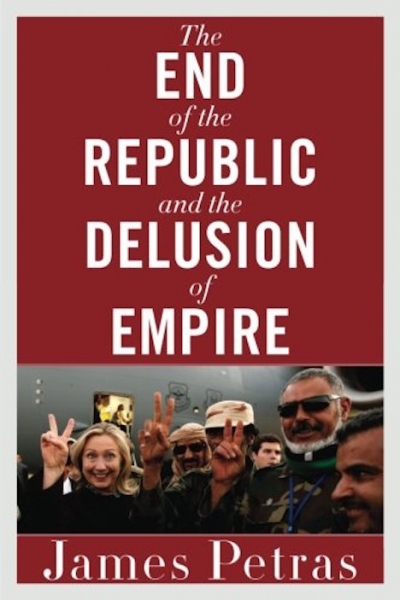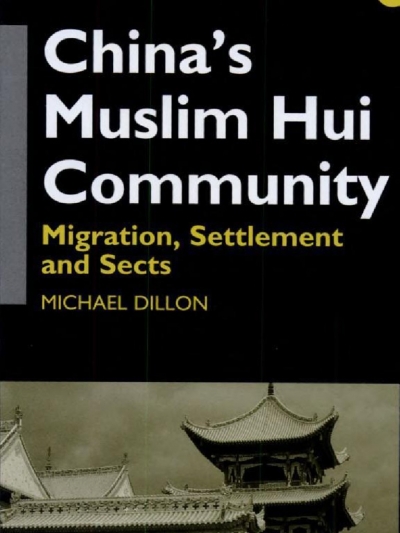



As part of a systematic policy, ‘peaceful’ Buddhists in Myanmar are exterminating the Rohingya Muslims but beyond verbal condemnation, few practical steps have been taken by the world to stop the genocide.
China’s One Belt, One Road initiative was launched at a grand conference in Beijing last month. The plan envisages connecting the Eurasia landmass with China, Europe and South East Asia to foster trade and economic progress.
The Trump regime’s policy of courting Russia is designed to de-link it from China and Iran, two countries being targeted by the US. Will it succeed?
In about 10 years, China’s GDP will surpass that of the US. What does China’s economic and military power mean for the Muslim world?
Dark clouds hover over Pakistan's political landscape. Chief of Tehrik-e Insaf, Imran Khan has threatened to lay siege to Islamabad while Prime Minister Nawaz Sharif faces growing pressure on many fronts including corruption charges stemming from Panama leaks and tense civilian-military relations. The former army chief, General Mirza Aslam Beg, sees parallels between this and the 1977 agitation that led to Bhutto's overthrow by the military.
1Canadian writer and scholar Eric Walberg reviews two books that consider Barack Obama’s legacy as president. Eric Walberg considers the Obama legacy through the eyes of James Petras who wrote The End of the Republic and the Delusion of Empire (Clarity Press, 2016; 254pp., $24.95 pbk), and Jeremy Hammond, author of Obstacle to Peace: The US Role in the Israeli-Palestinian Conflict (Worldview Publications, 2016; 538pp., $22.99 pbk).
Life for the Afghan people has never been easy but having suffered war for nearly four decades, they want some peace and security. These are denied them because of the conflicting interests of external players.
Peace in Afghanistan is vital for the region but there are players that want to disrupt it, especially members of the Afghan Northern Alliance because they believe such an outcome would diminish their influence and clout in the country.
It appears that neither Russia or China is prepared to allow NATO countries led by the US to create another Libya-type scenario in Syria. The stakes are too high for both. Given US duplicity in fighting against the takfiri terrorists (actually non-fighting), Russia and China have decided to go after the terrorists for their own reasons. Iran and Hizbullah are also helping the Syrian government to confront the terrorist threat...
The US has maintained its dominance of global affairs through militarism and the dollar. If the dollar were retired as a global currency, US militarism and aggression would be dealt a severe blow.
Pakistani Prime Minister Nawaz Sharif seems to have hit a jackpot. The Chinese plan to invest $46 billion in Pakistan’s infrastructure—roads, railways and power plants—to facilitate transport of Chinese goods to markets worldwide.
The US economy has taken a tumble faster than anticipated. This was confirmed by the International Monetary Fund when it released figures on December 4 showing that China has surpassed the US as the world's largest economy. America had been the world's dominant economic power since 1872. No more.
China's security arrangement proposal with Russia and Iran has caused panic among warmongers in Washington DC. The US is definitely on its way out as other powers assert themselves.
As the US has been defeated in Iraq and Afghanistan, it has shifted its focus to the Pacific region to contain the rising power of China. General Mirza Aslam Beg, former chief of the Pakistan Army, argues that countries like Pakistan, Iran and Afghanistan are well-placed to assert their rights in this new architecture.
Mali is being targeted as much for its mineral wealth as to keep China from developing close links with Africa. The struggle for influence between the west and China is being fought on the backs of the African people.
China is gearing up to fill the vacuum.
China's Muslim Hui Community: Migration, Settlement and Sects by Michael Dillon. Pub: Curzon Press, Richmond, UK, 1999. Pp: 208. Hbk: UK40.00.
The “ethnic violence” in East Turkestan, now referred to as China’s Xinjiang province which was first reported on July 5, again brought into light the plight of a forgotten section of the Ummah...
It was widely expected that the reconciliation-congress chaired by the ineffectual transitional government, headed by the former warlord and nominal president Abdullahi Yusuf, would fail almost as soon as it began on July 15. What was not expected was China’s decision to secure a contract with the nominal head. Not only is there no chance to find and extract oil, because of the endemic unrest all over the country, but China’s expected involvement in the federal government’s schemes is bound to contribute to the violence.


